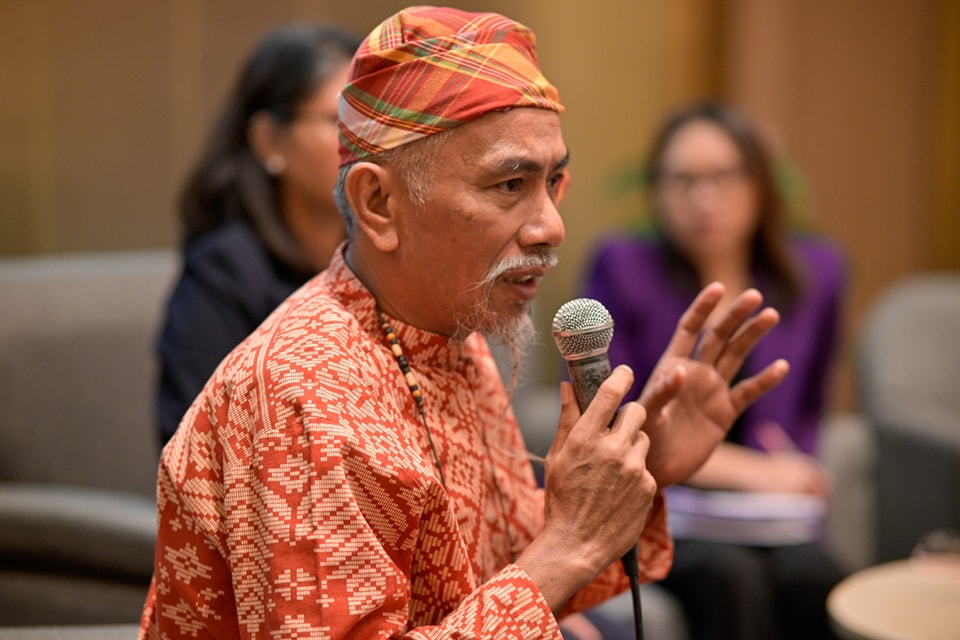
- IAG Philippines
Timuay Leticio Datuwata, chieftain of the Teduray Indigenous community, traveled all the way to Manila to raise his voice. He, along with other leaders, is urging the Bangsamoro Parliament to revise Bill No. 273, the proposed Bangsamoro Indigenous Peoples Development Act. Their primary concern? The legislation, in its current form, threatens the distinct identity and ancestral domain rights of Non-Moro Indigenous Peoples (NMIPs) in the Bangsamoro Autonomous Region in Muslim Mindanao (BARMM).
Datuwata
isn't alone in his worries. The NMIP position paper estimates over
190,000 individuals from 35 villages and 11 towns across 208,000
hectares could be impacted.
Concerns with Bill No. 273
The NMIPs have two major concerns with the proposed Bangsamoro IP Code (Bill No. 273).
- Exclusion of "Non-Moro": First, they argue the title should explicitly mention "Non-Moro Indigenous Peoples." They believe the current wording fails to recognize their distinct identity from the Moro majority in the BARMM.
- Ancestral Domain Rights: Second, they fear the concept of a "shared ancestral domain" weakens their claim to specific territories. This concern stems from the phrasing used in the bill, which they believe could allow others to stake claims within their ancestral lands.
Beyond Bill No. 273: Challenges for NMIPs
The fight for ancestral domain rights and recognition is just one hurdle faced by NMIPs in the BARMM. The Institute for Autonomy and Governance (IAG) highlights two other challenges:
- Camp Transformation Program: This program, part of the peace process between the Philippine government (GPH) and the Moro Islamic Liberation Front (MILF), aims to convert former MILF camps into peaceful communities. However, some of these camps are located within ancestral domains of NMIPs, leading to displacement and violence according to NMIP leaders. Datuwata himself claims at least 65 NMIPs have been killed and thousands displaced since 2018.
- Delayed Ancestral Domain Titling: The
NMIPs have yet to receive Certificate of Ancestral Domain Title (CADT)
despite provisions in the Bangsamoro Organic Law (BOL) guaranteeing
them. The IAG points out a resolution passed by the Bangsamoro
Transition Authority (BTA), the current Bangsamoro Parliament, that
appears to contradict these guarantees.
A Call to Action
The
NMIP position paper urges the national government, including the
President, Senate, and House of Representatives, to intervene. They
argue the IPRA and BOL are not being fully implemented in the BARMM,
citing the lack of CADTs, ongoing displacement, and the proposed IP Code
that disregards their distinct identity.
IAG argues that with the current approach to the IP Code, the national government and international supporters of the peace process hold the key to ensuring NMIPs are not "sacrificial lambs" in achieving peace. IAG concludes by questioning the nature of peace built on the suppression of fundamental human rights, particularly those of minorities.
Looking Ahead
The fight for ancestral domain rights and recognition for NMIPs in the BARMM is complex and ongoing. Whether Bill No. 273 is revised to address their concerns and how the broader challenges of displacement and delayed titling are resolved will be crucial in determining the true inclusivity of the Bangsamoro peace process.
Comments
Post a Comment